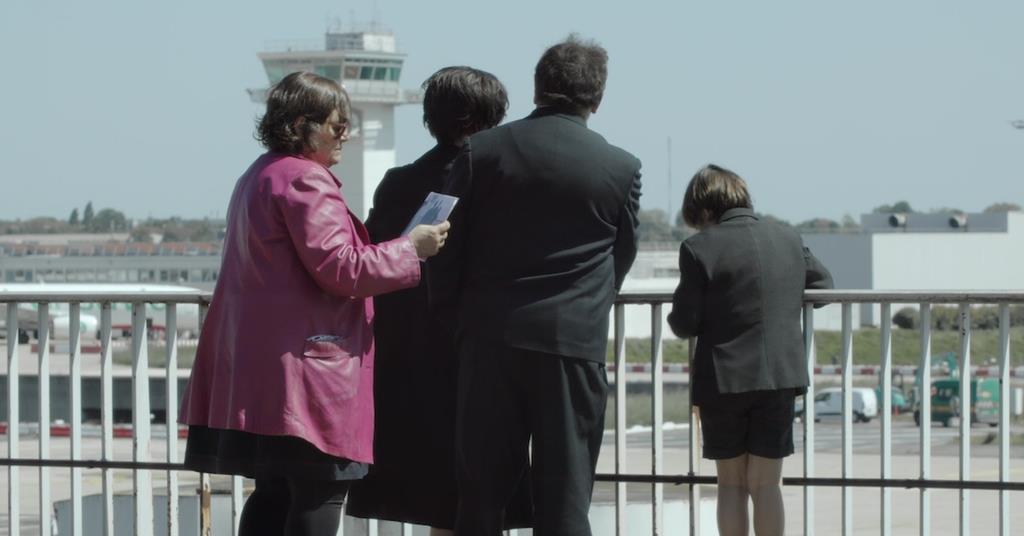Captivating Time Travel: A Review of 'La Jetée, The Fifth Shot' at DOK Leipzig

Ah, La Jetée. A cinematic treasure crafted by Chris Marker in 1962, whispering tales through still photographs rather than the conventional moving images. In a world where flashy visuals reign supreme, it remains a bewitching enigma, captivating filmmakers and cinephiles alike. Enter the intriguing rabbit hole of La Jetée, The Fifth Shot, a documentary by Dominique Cabrera that may wobble about a bit, but it certainly piques the curiosity.
Our adventure begins when an elderly French gentleman, let’s call him Jean-Henri, squints into the abyss of time and suddenly—voilà!—he spots his younger self in that fabled fifth shot of the film. Yes, folks, hold onto your hats, because this should make you wonder if memories really are just whimsically frozen moments waiting to be rediscovered on cinema's darkly illuminated shores.
Jean-Henri isn’t just any ordinary fellow; he hails from a lineage of pieds-noirs—those European-descendant souls born in Algeria during its lengthy rendezvous with French colonial rule. The history buff in you might just perk up; many of these families, like Jean-Henri's, fled to France around the time Algeria flipped its independence switch in 1962. Surprisingly, many had never even set foot in this so-called “motherland.” Instead, they gathered around Orly, hoping to catch a glimpse of their beloved kin arriving from the land they left behind. Can we say melancholy meets nostalgia?
But wait, this film isn't just a family history project. Cabrera, weaving her familial connections, embarks on a quest to determine if Jean-Henri truly is that little boy peering down at the tarmac, surrounded by a blur of black-and-white wonder. Here he is, drawn next to his parents, all looking skyward, yet with their backs firmly turned to Marker’s lens. It’s like peering at a painting where the artist has intentionally shunned the more obvious details. Is it really him? The evidence feels more like a heartwarming puzzle than a forensic analysis.
Picture this: a dimly-lit editing suite, replete with whispers and laughter, as Cabrera engages in candid conversations with her subjects, her warm familiarity layering the complex web of memories and realities. However, with such a familial setting, her narrative flow sometimes stumbles, like that beloved aunt trying to spin a yarn while forgetting where she started. Yet, despite its occasional meandering, a thread of inquiry about the essence of images—how we capture, remember, and sometimes misplace reality—keeps the audience glued to their seats.
And who could resist the allure of time travel? A theme so beautifully executed in the original La Jetée, as Cabrera playfully nudges against this concept, letting viewers ponder the awkward dance between the ages. It’s like watching your younger self in an old mirror—there’s a strange comfort and disquiet that stirs within. Meanwhile, winks and nods to Marker’s oeuvre are sprinkled throughout, creating a delightful scavenger hunt for dedicated fans.
However, let’s be real—while the familial history takes center stage for those involved, for those of us with little knowledge of French colonial history, the intensity of the connection may limp a little. It’s akin to being invited to a dinner party where you’re not quite familiar with the inside jokes; you smile politely, but the jokes fly right over your head.
If we’re talking technicalities, I’d argue that the editing, courtesy of the talented Sophie Brunet and Dominique Barbier, could benefit from a sprinkle of discipline. At 104 minutes, it feels a tad long, especially when compared to Marker’s succinct masterpiece, which barely clocks in at a fraction of that time. Maybe, just maybe, there’s a leaner cut lurking in the shadows, waiting for its television debut. Fingers crossed!
So, in summary, La Jetée, The Fifth Shot spins quite the tale—a jigsaw of memories unearthing connections, with a side of irony and nostalgic charm. Whether you're a die-hard cinephile or just someone with a penchant for the curious, this documentary provides a fascinating lens into a past that, like the films themselves, continues to echo through the ages.

